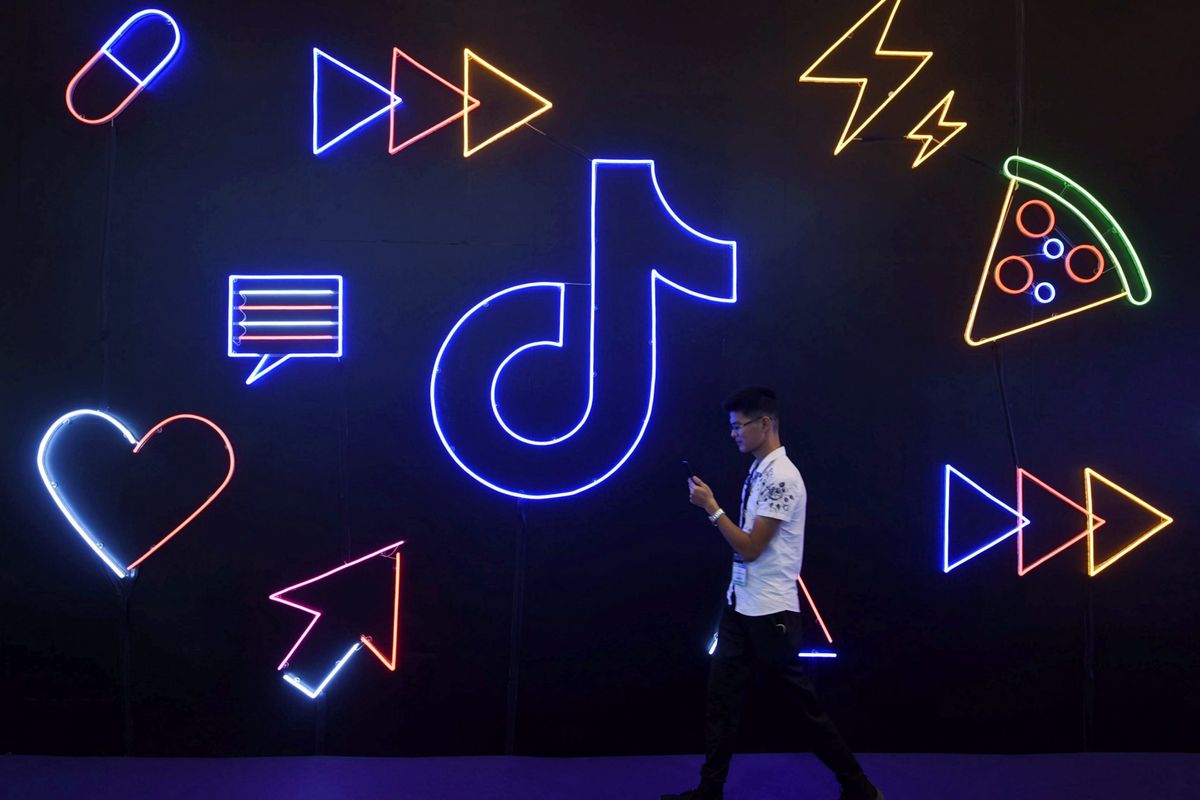Douyin’s screen time limit is “100% the bigger trend,” says Stanley Chao, ex-president of Kingston Technology

A few minutes every morning is all you need.
Stay up to date on the world's Headlines and Human Stories. It's fun, it's factual, it's fluff-free.
“No question, these restrictions are going to hurt the bottom line,” he said, “and that’s why all their stock prices are getting hammered and will continue to get hammered as analysts lower projections.”
What’s been going on at Douyin?
- Douyin, which is China’s version of TikTok, announced on September 18 that it would be limiting the usage of its app by users under 14 to 40 minutes per day.
- According to the announcement by parent company ByteDance Ltd., this limit will take effect for all kids who have their account under their real name, urging parents to ensure that their kids signed up under their real, legal names.
- The restriction will also mean that those users won’t be able to access the app between 10 p.m. and 6 a.m.
- This move from ByteDance came only a couple of weeks after China announced that it would be limiting childrens’ playing of video games to only three hours a week in late August.
- The Chinese government explained that video games are harmful to children, with state-owned media calling it “spiritual opium.”
Why’s ByteDance doing this?
- In a TMS exclusive with Stanley Chao, ex-president of Kingston Technology and the managing director of All In Consulting, he said he thinks the decision was a preemptive one.
- “I don’t think Douyin’s decision is based on any hard government regulation,” said Chao.
- “However, Douyin sees the writing on the wall, and they [would] rather take actions on their own accord than wait for the government to come down hard on them.”
- Chao said that the move could be beneficial for Douyin, primarily that it shows they’re acting in good faith within government regulations, and that Douyin “might even get off easy by self-imposing less restrictive limits on usage time than what the government may have imposed.”
What’s the motivation for these restrictions?
- The Chinese government has said that limiting this kind of content is to ensure children aren’t exposed to harmful or unhealthy content.
- But Chao said that there’s also a cultural aspect to the restrictions, namely that the government is trying to retain some of the power that it’s seen big tech win over in the west.
- “For the past 5 years or so, China has observed the takeover of big tech in the U.S. – the ability of Google, Facebook and Twitter to control and influence how its users behave, think and even vote as well as their proliferation of fake news.”
- “We’re seeing the CCP take back its power grab,” said Chao. “ I think some CCP leaders, including President Xi Jinping, felt they were on the precipice of losing control and power over its citizens.”
- “These acts at this juncture in time solidifies Xi Jinping and the CCP as the supreme ruler and sends a message to big-tech, billionaires and movie idols that China made them who and what they are, and thus, can also take it all away in a moment’s notice.”
Will this hurt profits?
- According to Chao, the answer is a resounding yes.
- “No question, these restrictions are going to hurt the bottom line,” he said, “and that’s why all their stock prices are getting hammered and will continue to get hammered as analysts lower projections.”
- But he also emphasized that when the decision is between being shut down and being forced to self-impose restrictions, it just makes sense to go with the latter option.
- “… lower profits,” he said, “are definitely a better alternative to being closed down by the government.”
- “President Xi is sending a message: sharing the wealth, ethical and moral conduct will now take precedence over greed, profits and opulence.”
What’s next?
- Chao believes that there are more regulations to come.
- “This is 100% the bigger trend,” he said. “Douyin is just the first. More social companies will follow in the coming days and weeks. In fact, the CCP now expects social media companies to follow, or face possible financial penalties or even temporary closures.”
- But it’s important to remember that Douyin wasn’t making the decision because of any imposed regulation forcing it to limit screen time.
- Douyin decided to get ahead of any regulation. If regulation does come down the road, it may affect Douyin less than other social media companies, if at all.
- More broadly, Chao said these kinds of changes in the industry in China would force companies to change their business models. “Whatever method, the current status quo business models won’t pay the bills and won’t bump their stock prices up. They have to find new growth potentials.”
- Overall, though, regulation for various industries, especially tech, is growing in the country, and this is just one company’s strategy to try and work with the change.
You drive the stories at TMS. DM us which headline you want us to explain, or email us at tips@themilsource.com







Comments ()